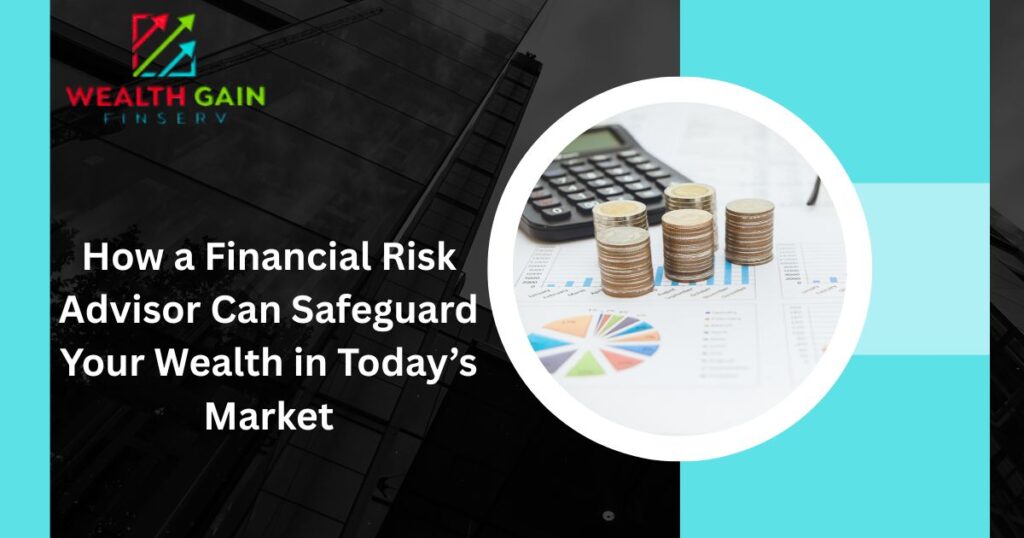🌍 Introduction: The Age of Financial Uncertainty
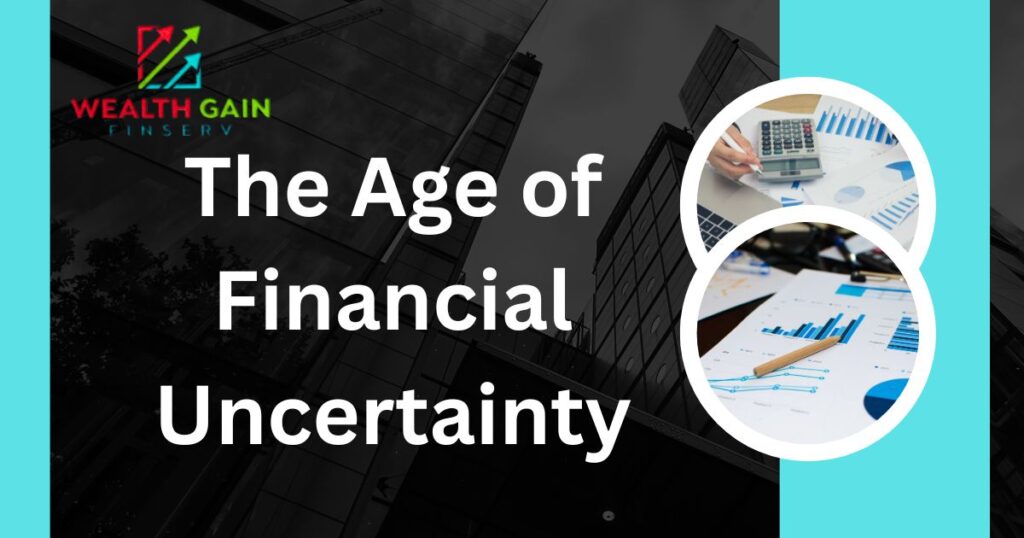
In 2025, the world of finance is more unpredictable than ever. With market volatility, rising inflation, economic slowdowns, and global uncertainties, even the most seasoned investors are facing tough decisions. In this environment, wealth creation alone isn’t enough — wealth protection is the real game-changer.
This is where a Financial Risk Advisor becomes crucial. Just as you need a doctor for your health, you need a risk expert for your finances. In this blog, we’ll explore how financial risk advisors work to safeguard your wealth, optimize risk exposure, and build long-term stability in an unstable world.
💼 Who Is a Financial Risk Advisor?

A Financial Risk Advisor is a trained professional who specializes in identifying, analyzing, and mitigating the various financial risks that individuals or businesses face. Unlike general financial planners who focus on building wealth, risk advisors focus on protecting it.
They are equipped with qualifications such as:
- Certified Financial Risk Manager (FRM)
- Chartered Financial Analyst (CFA)
- Certified Financial Planner (CFP)
- Government Certified Financial Risk Advisor (India)
They provide a comprehensive understanding of market risks, portfolio risks, insurance gaps, and more — all tailored to your personal goals and risk tolerance.
Keywords: financial risk advisor, financial protection, wealth safeguarding, risk management expert
⚖️ Financial Risk Advisor vs. Financial Planner: What’s the Difference?
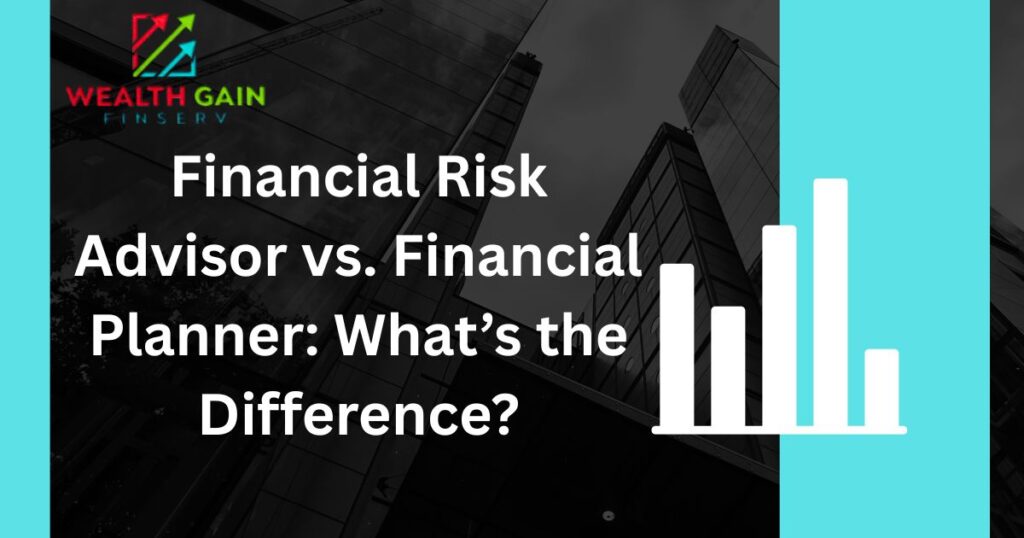
It’s important not to confuse a financial risk advisor with a financial planner. While their roles may overlap, their core objectives are different.
| Financial Planner | Financial Risk Advisor |
|---|---|
| Focuses on wealth creation | Focuses on risk protection |
| Designs investment roadmaps | Analyzes risks and safeguards assets |
| Manages goals & budgeting | Minimizes losses in uncertain scenarios |
Think of it this way:
A financial planner is like an architect designing your dream home. A financial risk advisor is the structural engineer ensuring that house can survive an earthquake.
🧩 Key Financial Risks a Risk Advisor Helps Manage
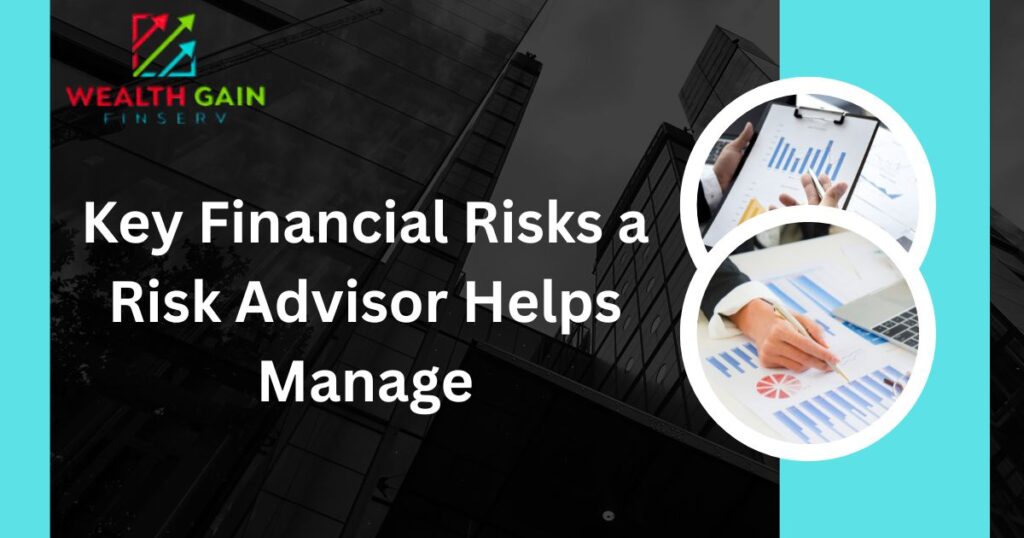
Risk is a part of every financial journey. But not all risks are obvious to the average investor. Here are the major categories a financial risk advisor helps manage:
- Market Risk – Loss due to market movements in stocks, bonds, commodities, etc.
- Inflation Risk – The risk that your money will lose purchasing power over time.
- Credit Risk – Risk of loan defaults or credit losses.
- Liquidity Risk – When assets can’t be sold quickly without significant loss.
- Insurance & Protection Gaps – Underinsured lives or assets.
- Longevity Risk – Outliving your retirement savings.
Each of these can silently erode your wealth if not monitored and managed carefully.
📊 Risk Profiling: Understanding Your Financial DNA
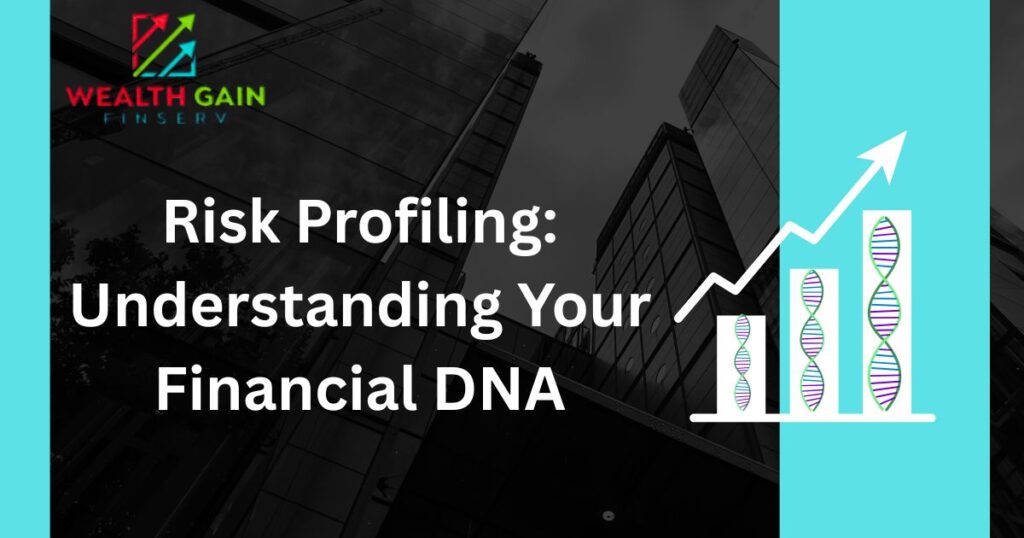
Every individual has a different level of risk tolerance, influenced by age, income, lifestyle, and financial goals. A financial risk advisor conducts:
- Risk tolerance assessments
- Cash flow analysis
- Scenario testing (e.g., what happens if the market drops 20%)
- Investment stress testing
This helps create a risk profile that becomes the foundation of your financial decisions. You’ll know how much risk you can take without losing sleep — or your savings.
🔐 Building a Risk-Proof Financial Plan

A financial risk advisor doesn’t just identify risk — they strategically reduce it. Here’s how:
- Diversification: Spreading investments across different asset classes to avoid concentration risk.
- Asset Allocation: Balancing high-risk and low-risk assets based on your profile.
- Emergency Fund Setup: Protecting against job loss, health emergencies, or unexpected expenses.
- Insurance Planning: Ensuring adequate life, health, term, and accidental coverage.
- Goal-Based Investments: Matching risk levels with specific life goals (e.g., child education, house purchase).
Keyword focus: risk-proof financial plan, diversification, asset allocation, insurance planning
📉 How Risk Advisors Help During Market Volatility

Markets rise and fall — but emotions should not. One of the biggest advantages of having a financial risk advisor is their role during bear markets, crashes, or recessions.
They provide:
- Emotional detachment from panic selling
- Tactical portfolio rebalancing
- Guidance on exit/entry timing
- Focus on long-term discipline
They act as a financial anchor when you’re tempted to abandon your strategy.
📈 Safeguarding Wealth for the Long Run

Short-term market gains mean little if your long-term goals are in danger. A risk advisor ensures:
- Retirement planning with inflation-adjusted projections
- Tax-efficient strategies to reduce burden
- Debt management and restructuring advice
- Asset protection through trusts, nominations, and estate planning
They help you preserve, protect, and pass on your wealth across generations.
👨👩👧👦 Real-Life Scenarios: When a Risk Advisor Makes a Big Difference

Imagine this:
Case Study 1: Mr. Sharma, aged 45, had 90% of his wealth in equity mutual funds and stocks. During a market crash, he lost 30% of his portfolio. After consulting a risk advisor, he diversified into debt, gold, and liquid funds, added term insurance, and created a better risk-adjusted plan.
Case Study 2: A small business owner had no income protection or critical illness insurance. After suffering a medical emergency, his family faced financial distress. A financial risk advisor could have identified this gap and secured the family’s future.
These are not rare — they’re common stories that highlight the life-changing value of risk guidance.
🧭 Conclusion: Don’t Just Grow Wealth — Protect It

In today’s unpredictable financial environment, a financial risk advisor is not a luxury — it’s a necessity. While you may be investing for the future, are you protecting what you already have?
By hiring a professional to help you manage financial risks, you gain:
- Peace of mind
- Long-term wealth stability
- A clear, actionable plan

